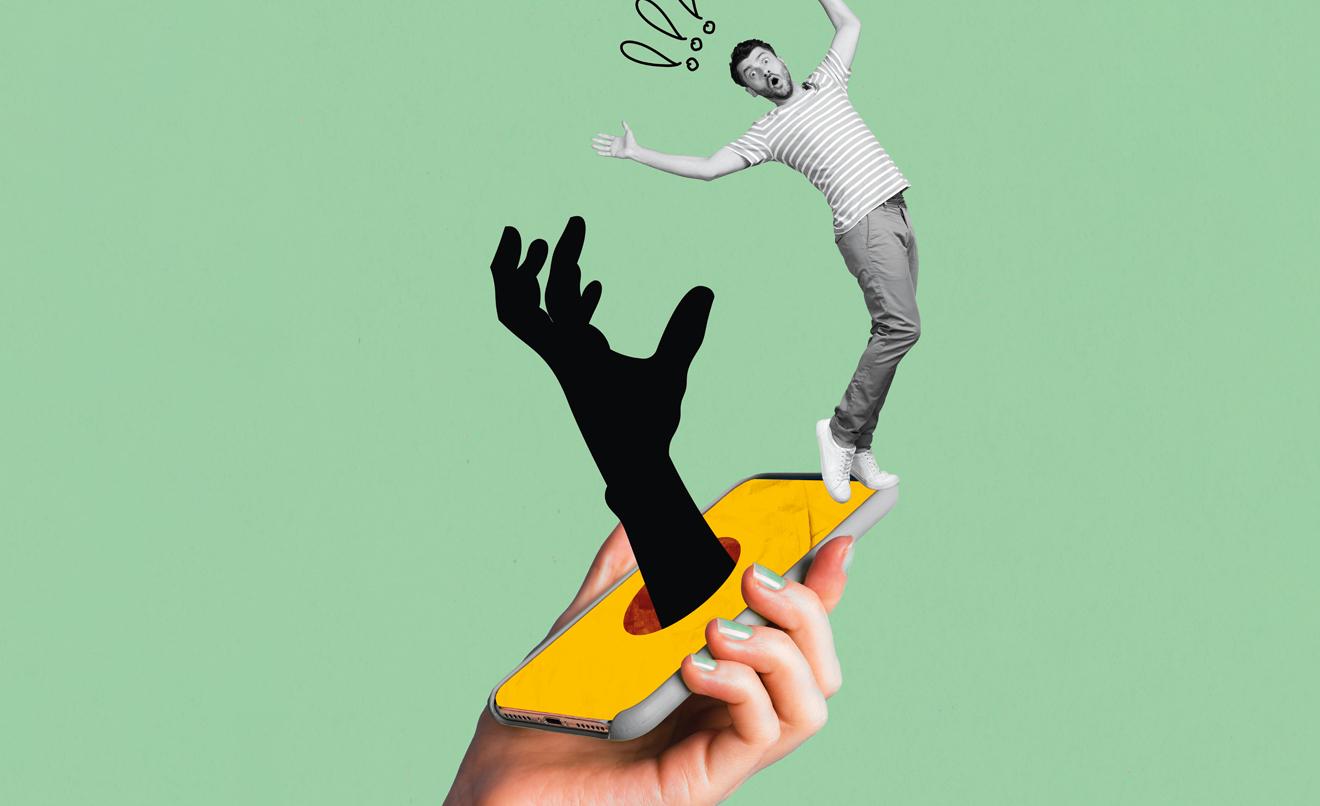
Nomophobia, whatsappitis, phubbing or vamping are
some of the new terms coined to name behaviors, disorders and pathologies
derived from the use of our mobile phones. The hyperconnectivity to which we
are subjected does have consequences for our health.
Effects on our joints
The
excessive use of our smartphones may cause joint and muscle disorders in
different parts of our body:
Carpal tunnel syndrome: the nerve that runs from the
forearm to the hand is compressed as it passes through the wrist, causing tingling,
pain and numbness.
Thumb tendinopathy: it’s also known as whatsappitis,
and is caused by repeated movements with the thumb. Some studies even claim that
it could change the way the hand is used, and it’s already been noticed that today’s
children no longer use the hand gripper as much due to the use of touch screens
in schools.
Cervical pain: pain in the upper part
of the neck caused by the neck inclination to look at the tablet or phone instead
of putting the screen at eye level.
Sleep disorders
Be careful
at night. One of the new "epidemics" of the 21st century
that mainly affects teenagers is called vamping and refers to
the use of the smartphone until the very early morning hours. This affects rest
by reducing sleep hours and quality, so we should not use our mobile phones for
at least one hour before going to sleep. The bright light emitted by screens causes
confusion in our brains, which, thinking that it’s daytime, may reduce the
secretion of melatonin, which is the sleep hormone. It is a matter of fact that
poor sleep has a negative impact on our physical health, mood and quality of life
by damaging our immune system, causing stress and irritability, and worsening school
performance.
Nor should
we leave our cell phone on the bedside table while we sleep, as the waves it
emits may affect our rest. If you use it as an alarm, replace it with an alarm
clock.
Eyesight disorders
Our eyes
are not the only victims of the mobile phone. Indeed, during the day, we spend
too much time in front of this and other screens (computers at work, TV...). This
unmeasured exposure has a damaging impact on our health, as it makes us notice redness,
tearing, dry eyes, blurred vision, headaches or even suffer from
hypersensitivity to light.
If you work
long hours in front of a screen, intentionally blink at a certain frequency and
take breaks. You could follow the rule of 20, which is to let the eyes rest every
20 minutes by looking at a distance of 20 feet (6 meters) for 20 seconds.
Social and psychological drawbacks
If you feel
anxiety and distress, mood swings or palpitations when you are out of range, run
out of battery or forget your mobile phone, you suffer from nomophobia, which
is the irrational fear of being without your phone. The addiction to smartphones
may endanger our work by decreasing productivity and social life, among others.
This is called phubbing, which is the act of ignoring those around
you in a meeting with your family or friends for being on your phone. When we
are not able to control the use we make of our smartphones, we endanger our
psychological well-being and may develop anxiety, stress and even depression.
Sedentary lifestyle
It is obvious
that the more time we spend in front of a screen, the less time we dedicate to
physical exercise. Therefore, mobile phone abuse is directly linked to
sedentarism and its consequences: weight gain, cholesterol increase, diabetes,
cardiovascular risk, insomnia and apathy, among others.
Tips to avoid being hooked on your mobile phone
There are
some tips to limit the dependence on screens and avoid the development of
certain pathologies.
Let’s look on the bright side!
The
excessive use of technologies is the main reason for their damaging effects, as
technology itself makes our daily lives easier and when applied to health and
other areas of life, it has great benefits.
We can
download multiple apps to help us and our health. Some apps monitor our
physical activity and analyze the quality of our sleep; others help us follow a
training program; others help us stop smoking; others help us check the nutritional
quality of foods, etc. We must benefit from all these assets!
Do you know the Soria Natural app?
Soria Natural
launches for you a natural health app, through which you can access a botanical
guide with nearly 200 plants, their active principles and uses, and a vademecum
of the most common pathologies. Our catalog of phytotherapy products, dietary
supplements and organic food is also available on the app, as well as the sales
point to purchase them.